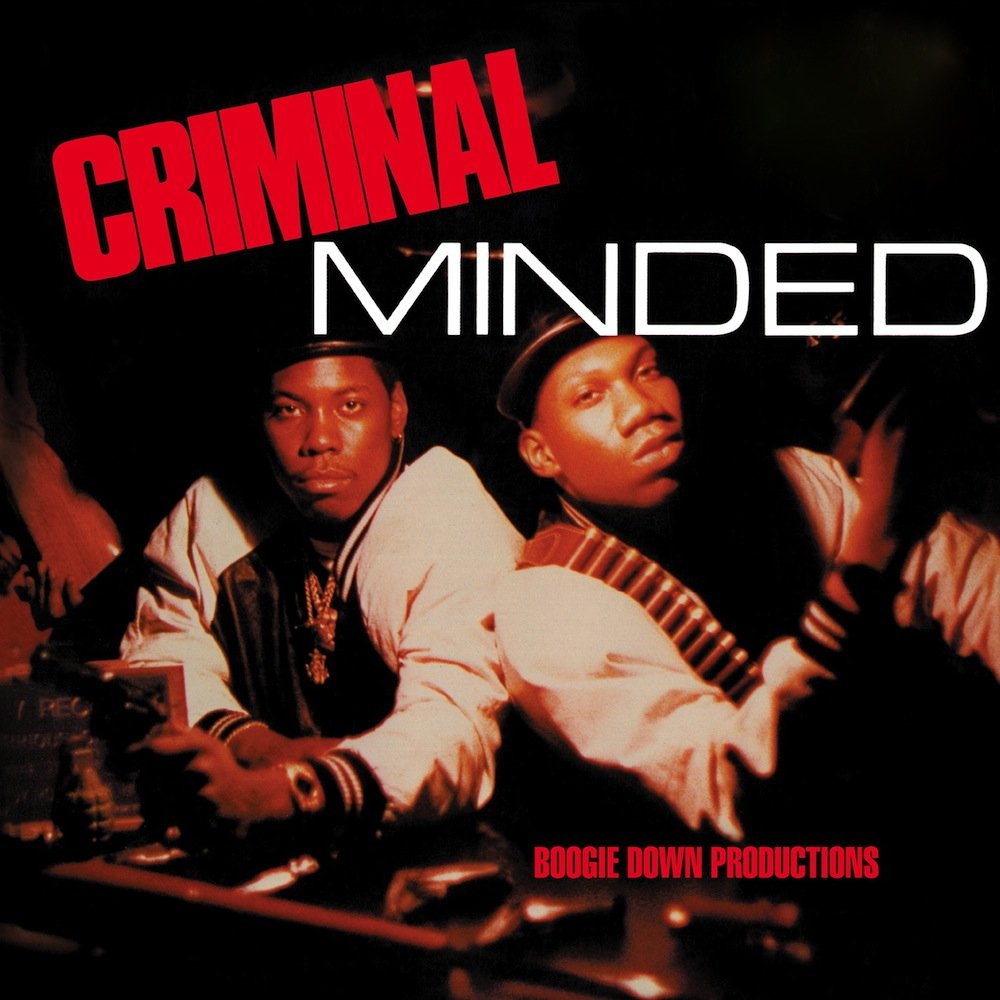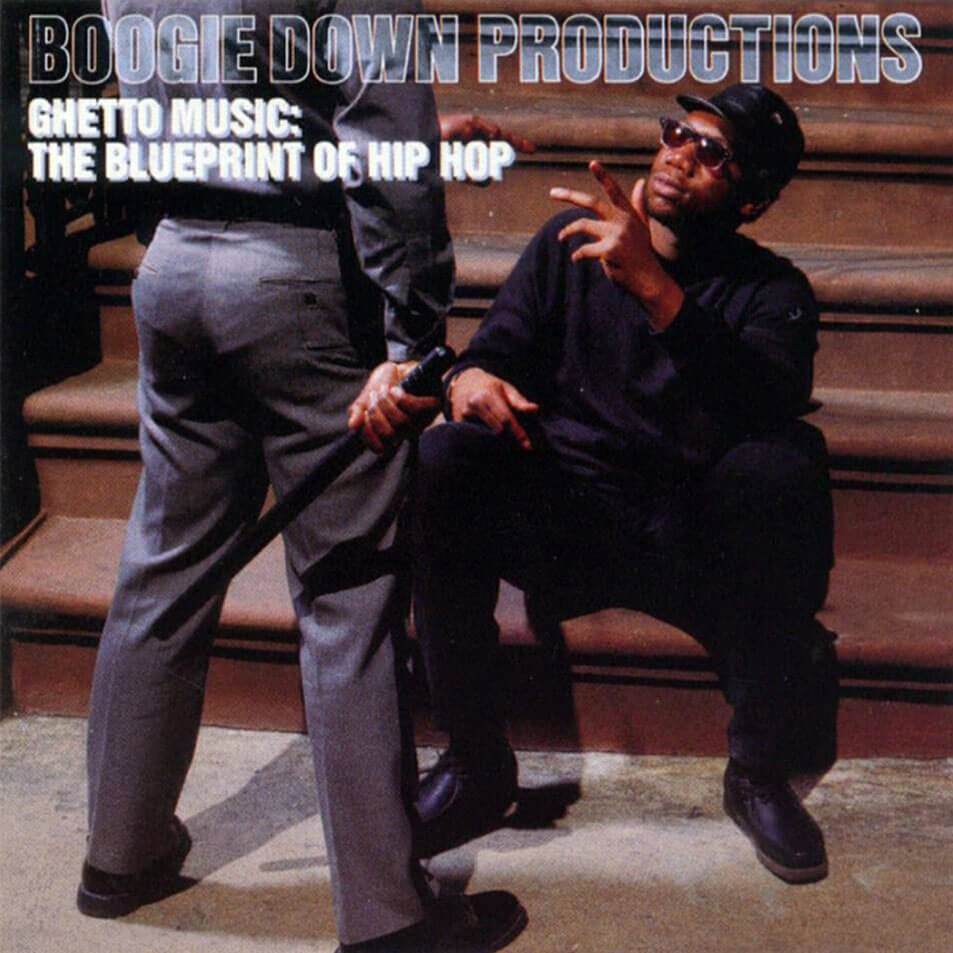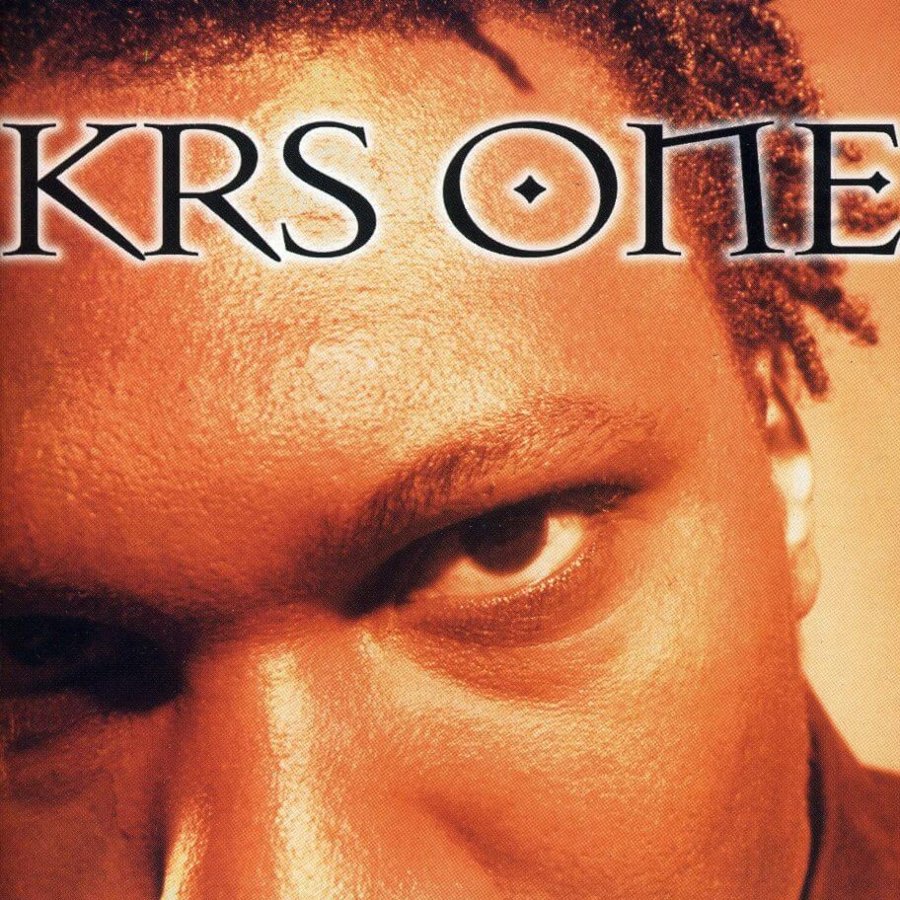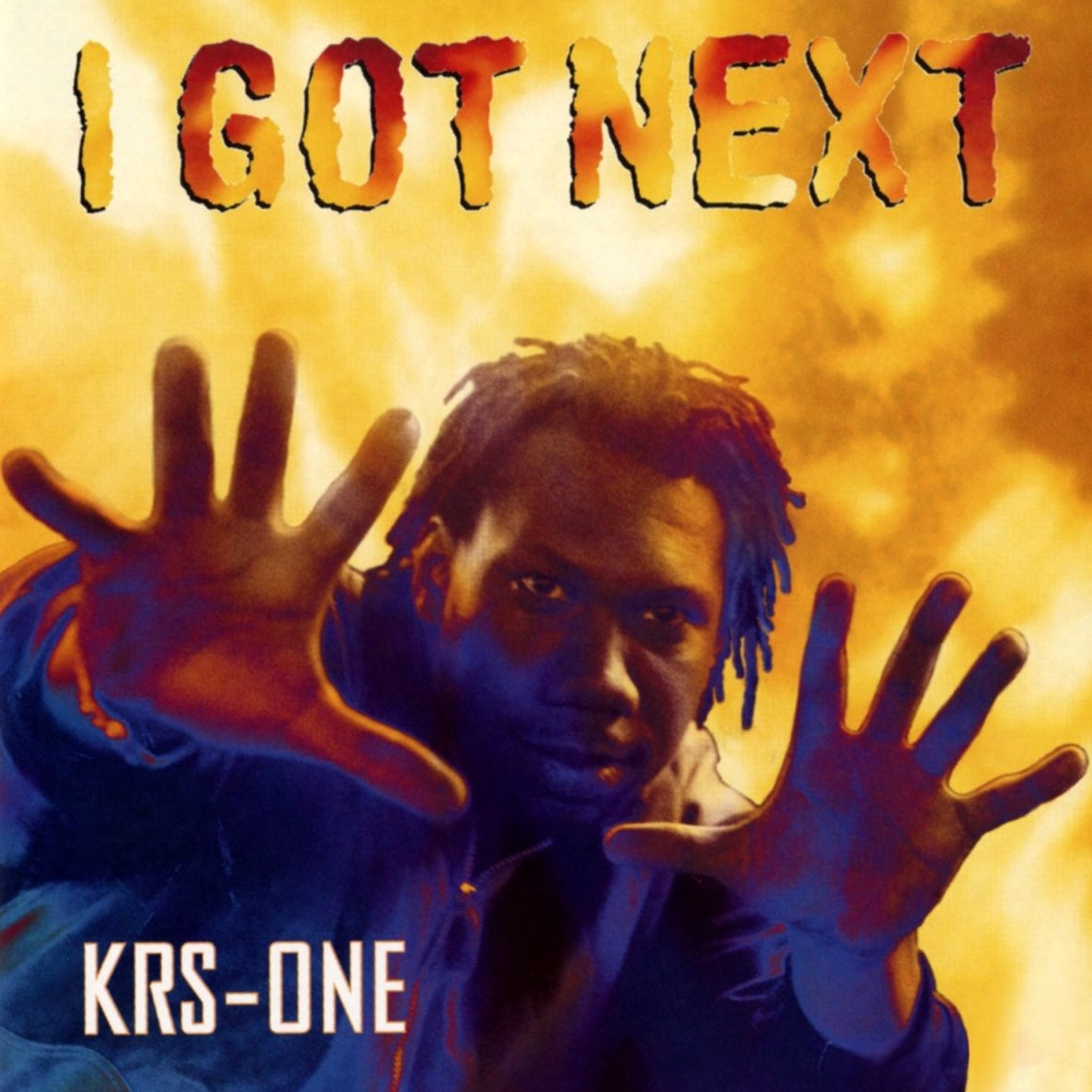Happy 30th Anniversary to KRS-One’s debut solo album Return of the Boom Bap, originally released September 28, 1993.
Considering Lawrence “KRS-One” Parker has long been such a singular talent, it’s weird to think that he wasn’t always a solo artist. But as everyone should know, he spent the first six or seven years of his career as the frontman for Boogie Down Productions, one of the defining crews of hip-hop’s golden years. Between 1987 and 1992, he was a central part of six different BDP projects (including one live album), from Criminal Minded (1987) to Sex and Violence (1992), one of the all-time great runs in hip-hop history. BDP as a crew may have grown expansively during this period, but KRS was always the group’s public face.
Then, around 1992/1993, BDP broke up. Fortunately, it didn’t impede KRS’ progress, as he quickly bounced back to release Return of the Boom Bap, his first solo endeavor, 30 years ago. The project is a salute to hardcore, drum-oriented hip-hop music, with KRS-One standing tall as the project’s focal point. It’s a great album, and one that sounds as fresh and engaging now as it did three decades ago.
For KRS, rebooting his career as a solo artist was necessary. “In 1992, my career was finished,” he said in an interview with djpremierblog.com. After going Gold with BDP’s Edutainment (1990), he only sold half as much with the incredibly dope follow-up Sex and Violence (1992). This led his label, Jive Records, to consider if it was time for everyone to move on. KRS had different ideas.
KRS agreed that his sales started to suffer after the infamous incident with alternative rap group P.M. Dawn. KRS had taken exception to some things that the duo’s frontman Prince Be had said in an interview with Details magazine. In response, KRS and crew took it to the stage during a P.M. Dawn performance at the Sound Factory in early 1992. During the brief melee, members of the group got tossed off the stage, and KRS performed a rousing rendition of “I’m Still #1.” Soon after, fans who heard KRS’ message of “Stop the Violence” for years thought he was contradicting himself and stopped supporting the BDP crew.
In response, KRS decided to take his career back to its essence. As the album’s title suggests, Return of the Boom Bap focused on a back-to-basics approach of creating hip-hop music. That started with his crew’s line-up. KRS had already whittled down the once sprawling ranks of BDP to himself, his DJ/brother Kenny Parker, and cohort Ill Will.
In 1993, KRS was still rightfully regarded among the upper echelon of elite emcees. Return of the Boom Bap only strengthened his legacy, as he flexes incredible skill while sounding as hungry as he ever has in his career. For subject matter, he mostly eschewed the loftier goals of his previous releases, directing his lyrical content towards skills-based displays. In terms of production, he backed these rugged rhymes with hardcore, drum-oriented bangers.
Watch the Official Videos:
The production on Return is on equal footing as its lyricism. A key architect of the project’s sound is DJ Premier, as his work on Return put him on the path to superstardom. These days, Preemo is firmly carved into hip-hop’s Mt. Rushmore of producers. But while he was still very respected three decades ago, he was still primarily associated with his work as one-half of Gang Starr. Preemo has said that KRS contacted him right around the release of Daily Operation (1992), which is right about when he first started calling himself a “producer.”
KRS had originally wanted DJ Premier to produce most of the album. That didn’t end up happening, but Preemo oversaw the album’s construction and sequencing, and was a key factor in setting Return’s tone, producing four of the album’s first five songs, and five tracks in total. The first of these collaborations is “KRS-One Attacks,” one of the best extended instrumental intros to ever appear on an album. After KRS’ rousing declaration of “WE WILL BE HERE FOREVER!!!!” Preemo lays down one of his trademark scratch collages over a soulful piano and horn loop.
Preemo is also behind the memorable heavy bassline thump that helps make “Outta Here,” the album’s first single, so memorable. Through the song, KRS explains his and the BDP crew’s musical origins, recounting living in city shelters, recording Criminal Minded, and learning about the tragic death of his mentor and DJ Scott La Rock. By documenting these difficult early years, he establishes how his crew’s work ethic distinguishes them from so many of his contemporaries who fell off and disappeared from hip-hop’s landscape. He also reminds rappers to refrain from purchasing gaudy personal possessions, like $500 loveseats.
KRS-One used his newfound solo status to record the types of songs he would never approach as BDP’s frontman. The Preemo-produced “I Can’t Wake Up” is the type of track that only solo artist KRS could pull off, as he raps from literally the perspective of a weed-filled blunt, getting passed around from one famous rapper to another. KRS belting out “I’M DREAMINNNNNNNNNNNNNN…. ABOUT BEING A BLUNT!” to the tune of Christopher Williams’ “I’m Dreamin’” is so completely ludicrous that it brought a smile to faces of legions of hardened b-boys and backpackers.
KRS does cover serious material throughout Return, including a pair of anti-police screeds. The first, “Black Cop,” was originally featured on the CB4 soundtrack, released in the spring of 1993. The self-produced track is a pretty-bare bones composition, with KRS manipulating stabs of a drum sample, and adding background chants. He rhymes in a Jamaican patois throughout the track, decrying African American police officers for terrorizing predominantly Black communities, comparing their behavior unfavorably to the Black members of South African Police during the Apartheid era.
“Sound of da Police” is another boisterous entry, with the Showbiz-produced track capturing the chaos caused by police presence in predominantly African American communities. The song features KRS’s most memorable hooks, as he brays, “Whoop! Whoop That’s the sound of the police!” with palpable urgency. During his verses, KRS expresses hostility, frustrated at the continued oppression and abuse of power committed by law enforcement.
Enjoying this article? Click/tap on the album covers to explore more about KRS-One:
However, when KRS focuses on demonstrating that he’s the best, he’s better than most who have ever composed a rhyme. The DJ Premier-produced “Mortal Thought” is a pure hip-hop treat. Preemo takes a minimalist approach on production, chopping a few notes from a piano sample and laying them over a crispy drum track, bringing in a bass sample occasionally for effect. On the mic, KRS gives one of the most impressive stylistic exhibitions of his career, and his delivery gets crazier and more complex from verse to verse. “Never have to repeat a rhyme style twice, precise,” he raps. “In a lyrical drought like water to your lips, oh yes, my lyrics will suffice.”
“Mad Crew” is a more aggressive lyrical exercise, as KRS brings remarkable energy and intensity with his presence. KRS delivers bruising verbal forearms to the head and chest of his opponents, pounding rival emcees into a gooey paste over three verses. He mocks both emcees unaware of his status and aspiring rappers ready to compromise their own credibility. “I play for Jeeps, I play for keeps, I play for streets, believe me,” he announces. “Put down the microphone and consider a squeegee.”
The title track aptly encapsulates the boom-bap sound, with KRS bringing the rawness with his production and lyricism. The beat is all rough and distorted drums, sounding like its emanating from a sound system on a South Bronx park jam. KRS rhymes was a measured ferocity, kicking ass and even throwing a few jabs at PM Dawn, who had themselves adopted a more conventionally “hip-hop” sound after the Sound Factory debacle. “On and on to the PM Dawn,” KRS raps. “I buck two shots and you squad is gone / You add a little street in your r-a-p / But never do you wanna challenge B.D.P.”
KRS also sounds comfortable over the smooth grooves on portions of Return, something he only occasionally dabbled with on previous albums. One of these exercises is “Slap Them Up,” a duet with Ill Will, produced by engineer Norty Cotto. Cotto builds a beat that goes against much of the album’s hard-hitting nature, though both KRS and Ill Will’s lyrics are appropriately confrontational. “Wow, for an amateur you really looked hard,” KRS sarcastically marvels, “but you're really a bitch, when you get it together, call me, here's my card.”
Kid Capri lends his production skills to Return, crafting two of the jazzier tracks on the album. The first is “Brown Skin Woman,” KRS’ loving, dancehall influenced dedication to women of African descent from around the globe. The Blastmaster later shares the mic with Capri on the bucolic “Stop Frontin’,” originally conceived as the album’s final track. Both disperse laid-back verses over a sample of Ahmad Jamal’s live version of “Poinciana.”
KRS keeps the mellow vibe going on “Higher Level,” one of the best closing tracks of a hip-hop album ever. DJ Premier hooks up one of the best beats of his career, sampling and flipping a portion of Gene Page’s Blacula soundtrack. KRS makes the wise decision to just let the beat ride to begin the song, basking in the placid yet triumphant grooves for a minute-and-a-half before starting to rap. The song functions as both a culmination of the album and his career to that point. It’s the most overtly message-oriented track on the album, as he warns against corrupt political and spiritual institutions, encouraging his audience to elevate their consciousness on their own terms.
KRS’ “solo” career is now about five times as long as his career as a member of BDP. I’ve written in the past about how while the Blastmaster’s output has not abated, its quality has been mixed for a large portion of that time. But in 1993, he was on top of the world, embracing his rough edges and contradictions, and giving his audience the raw hip-hop that it still wanted. Return of the Boom Bap set up the next three decades of his career and remains one of his most celebrated accomplishments.
Listen:





